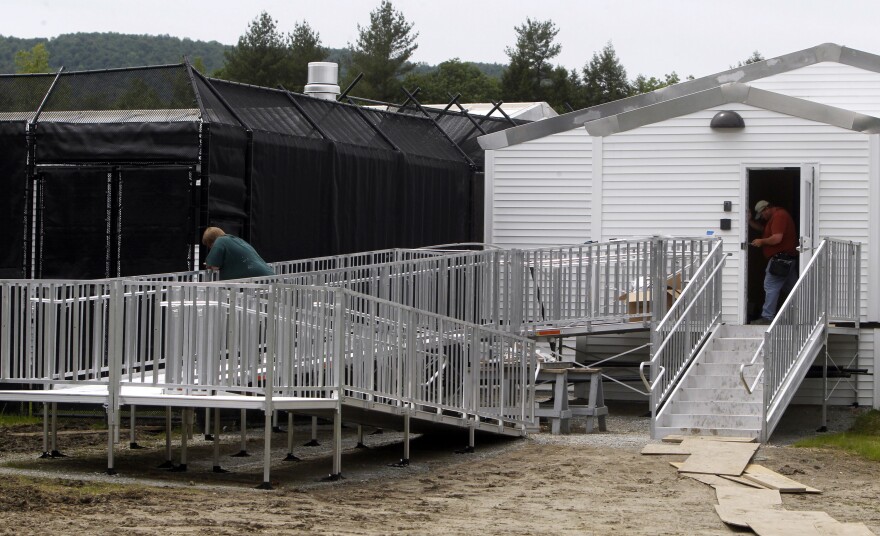A four-bed locked facility in Middlesex that would hold youth involved in the juvenile justice system could be open as early as September, the Department for Children and Families said in a report to lawmakers published this week.
But the department also said there are still several hurdles to clear, like having regulators sign off on the facility.
“There's a great many moving pieces that need to happen,” said Tyler Allen, adolescent services director for DCF’s Family Services Division, in an interview Wednesday.
The new youth facility will be run by Sentinel Group, LLC, which is associated with Becket, and the Vermont Permanency Initiative — two organizations that run therapeutic and mental health programs for youth, including the Vermont School for Girls in Bennington and Vermont Support & Stabilization.
Sentinel is working with DCF’s regulatory unit to get their program for the facility licensed, Allen said.
“Our residential licensing unit needs to have policies in place, and need to see the providers' policies,” Allen said. “So there's a number of those policies that are in kind of draft form.”
Sentinel also needs to hire staff, and they might want to have some physical upgrades to the facility beyond the renovations the state has already done, Allen said.
The Middlesex program will be housed in the building formerly used as the Middlesex Therapeutic Community Residence. The facility, consisting of two trailers in a parking lot, was built in 2013 as a stopgap measure after Tropical Storm Irene destroyed the state psychiatric hospital in Waterbury.
According to the report to legislators, the youth facility will have locked doors and an enclosed, fenced outdoor recreation area. The program will accommodate up to four youth, of all genders, between the ages of 12 and 18, the report says. The facility is intended to only hold youth for short periods of time, ideally two weeks or less, Allen said.
Vermont hasn’t had a locked facility for youth since shuttering Woodside in 2020 amid reports that staff used excessive force and unlawful restraints against kids at the facility. That’s led to an increase in the department's use of "staffing" children, which means a staff worker watches over a youth 24 hours a day. Some youth are also sent to out-of-state programs, which was a practice even when Woodside was open. In some instances, children have been held in adult prison.
DCF has pointed to the lack of a locked facility in the state as a barrier for implementing a reform measure that would send 19-year-olds to the juvenile justice system rather than adult court.
Some child welfare advocates say while the Middlesex facility might relieve some pressure in the juvenile justice system, the state should be putting more of its focus on strengthening community-based youth programs.
“We need to invest in systems that are preventive,” said Matthew Bernstein, the child, youth, and family advocate for the state of Vermont. “It increasingly appears to me that that DCF … most of the program development that they're doing, most of what they tell us, is various ways to isolate children from their communities.”
Allen, with DCF, said that the department is developing community-based programs, and those programs suffer without a secure facility.
“Vermont's the only state in the country that doesn't have access to any secure beds,” he said. “And when that happens, there's a great deal of disruption that happens elsewhere within the system.”
The Middlesex facility is meant to be a temporary program until the state can open a permanent one. DCF is currently pursuing a proposal to build a locked facility for youth in Vergennes. That project is still in very early stages of development, and if it goes forward won’t be completed for several years. The state abandoned a previous plan to open a secure juvenile facility in Newbury after strong opposition from the town.
Have questions, comments or tips? Send us a message.





